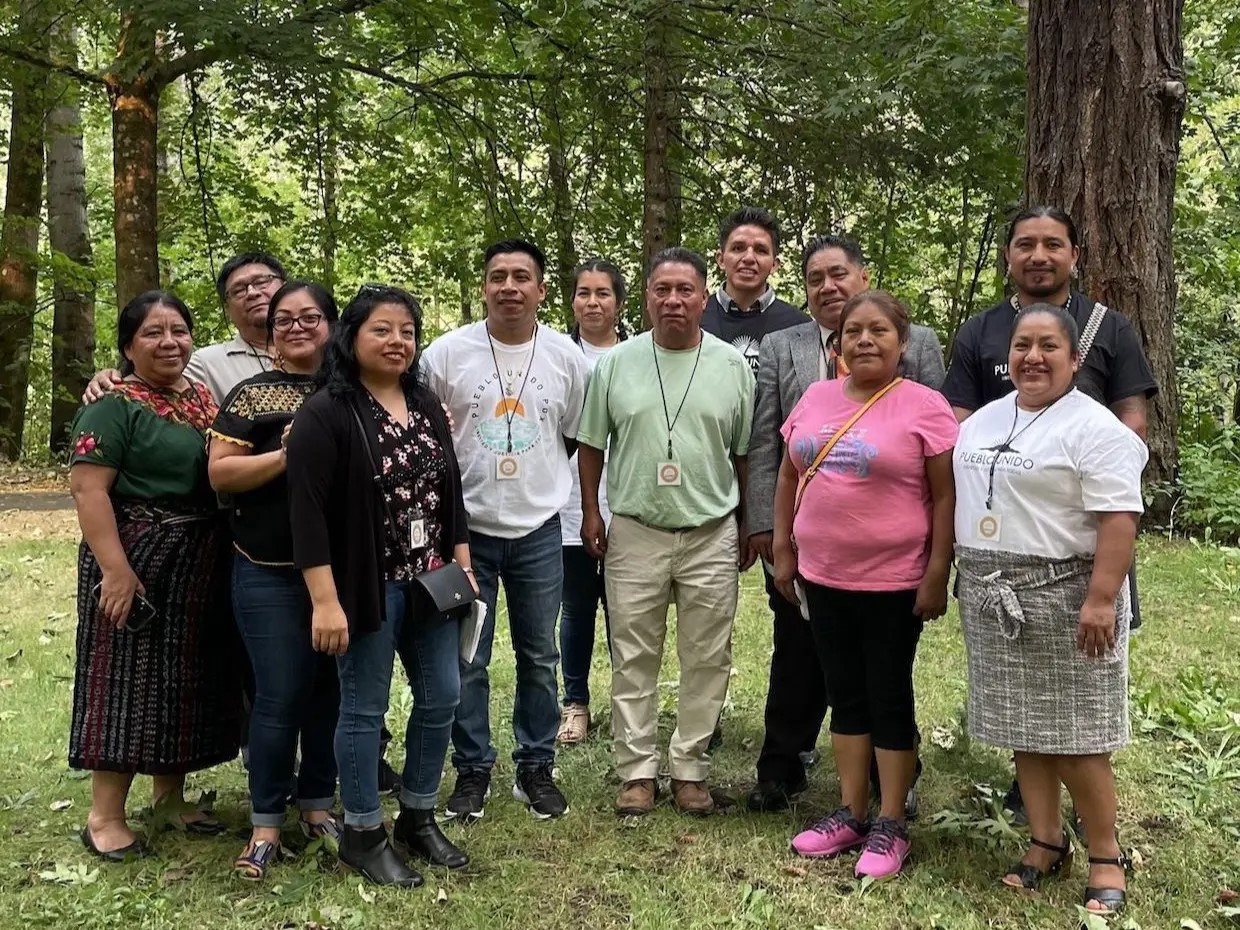
A collective of Indigenous language interpreters in Oregon. Photo: Pueblo Unido
For over 15 years, AFSC Project Voice Director Pedro Sosa has provided translation services for Oregon community members who speak the Mayan language K’iche’. He has helped them navigate government services, get medical care, and access other resources. But for a long time, there were no funds to compensate Indigenous language interpreters for their work.
“We did it to support the community,” Pedro says.
Now, thanks to advocacy efforts led by Indigenous interpreters and supported by AFSC, that’s changing. Earlier this year, the Oregon state legislature allocated $750,000 for Indigenous Language Justice to facilitate access to interpretation services for Indigenous-speaking communities.
The victory came through the work of the Collective of Indigenous Interpreters of Oregon, a project run by Pueblo Unido PDX with support from AFSC. The collective formed eight years ago when “a group of us Indigenous people came together to look at the needs in our community,” Pedro says.
The need for language justice became starkly apparent during the pandemic. “Many Indigenous people did not get help from the Oregon Worker Relief fund. Language was a big barrier," Pedro recalls. So he began doing Facebook Live sessions in K'iche' about the fund to help more community members access the benefits and resources available to them.
The language barrier extends far beyond emergency relief. In Guatemala, there are 22 Indigenous languages spoken, but interpreters for many of these languages face significant obstacles in providing services in the U.S. “The government was asking for credentials to be an interpreter, but many of us don’t have that kind of documentation to prove we are interpreters,” Pedro says. “Until now, we couldn’t technically do interpretation in the courts. But sometimes there’s no other choice for the judges.”
During the recent legislative session, Indigenous interpreters met with state lawmakers. They shared with them their experiences as interpreters as well as the challenges Indigenous community members face in accessing interpretation for vital services.
The new funding from the state recognizes the critical work that interpreters do for community members. Meanwhile, the Collective is working with other organizations to establish a system to help Indigenous language interpreters obtain formal credentials.
For Pedro, the language justice work connects directly to AFSC’s broader support for immigrants and their rights in Oregon. AFSC has been conducting Know Your Rights trainings in K’iche for the community and helping people prepare for appointments with lawyers.
“When we go into the farm fields, we often need to speak with the community that speaks K'iche'. That’s their first language,” Pedro says. “But there are still lots of other communities that don’t have the opportunity to be spoken to in their own language. I’m lucky to be part of that, to communicate with the community about resources, to share what they can do, and to support them.”
The Indigenous Language Justice funding was one of several immigrant rights victories AFSC supported in the 2025 Oregon legislative session. Other wins included $15 million for universal legal representation for people in detention, $2 million for the Farmworker Disaster Relief Fund, and funding for rental assistance.
To learn more about AFSC's work in Oregon, visit afsc.org/Oregon.
